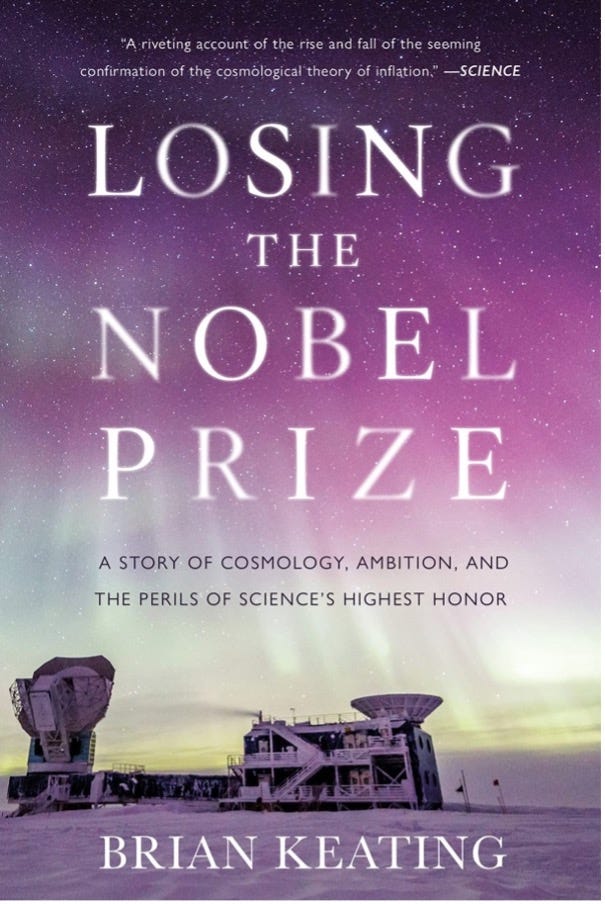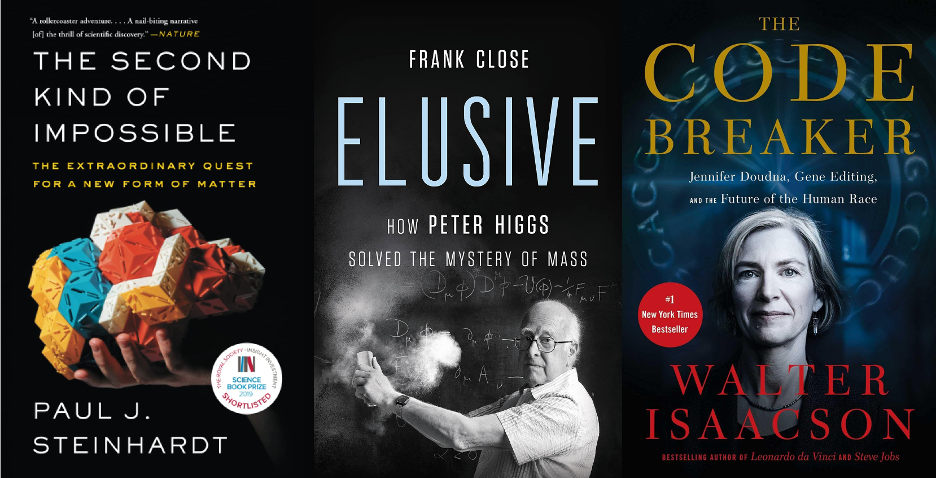Review of LOSING THE NOBEL PRIZE
A story of how the Nobel Prize distorts science
Each October scientists wait with anticipation for the announcement of the Nobel Prize winners. The Nobel is the most prestigious award a scientist can earn. It’s awarded to scientists who have made discipline altering discoveries in the fields of physics, chemistry, and medicine. The careers of the winners forever altered.
But the Nobel is more than a fancy (literal) gold medal of science. It has become a powerful shaper of science itself. Not only are the careers of the winners are enhanced, those of their students too, as well as the departments and institutions at which they work. In Losing the Nobel Prize: A Story of Cosmology, Ambition, and the Perils of Science’s Highest Honor, Brian Keating shows just how powerful this prize is, and especially in physics.
Like many ambitious physicists, Brian Keating hoped to make a discovery that would earn him the Nobel Prize one day. And in today’s physics environment, that means big science involving hundreds to thousands of individual contributors, high tech equipment, and millions of dollars. And he did it. Well, almost, anyway.
Keating sought to detect evidence of B-mode polarization – evidence of the Big Bang. He got funding, built a telescope, and traveled to the south pole for years of data collection. His team eventually build a second version of his original telescope until one day they saw the evidence they sought for years. The Nobel Prize was imminent.
Except it wasn’t. Keating was outed from the announcement since he wasn’t the main leader of the telescope anymore since splitting his time with that and another competing project. And the results turned out to be too good to be true. The Nobel slipped through his grasp.
In Losing the Nobel Prize, Keating shares the story of his early career aiming to detect evidence of the Big Bang and his path the (almost) winning the Nobel Prize. But he also offers a critique of the prize itself. The Nobel Prize is more than just an honor to great discoveries; it warps science itself.
He shares what he calls the three “broken lenses” of the Nobel Prize: its credit problem, cash problem, and collaboration problem. The Nobel Prize in any given field cannot be awarded to more than three individuals a year, they must be alive at the time of the award, and the prize must be given for groundbreaking discovery. However, science, especially today, is not a journey of the lone genius having an epiphany. Science today is carried out by massive teams working on expensive and long running projects. The very type of science the Nobel is not made to reward.
The arbitrary rules create an inhibitory type of competition that incentivizes a science that no longer exists in the modern era. Keating expertly showcases through his own brush with the prize how such constraints play out in physics – arguably the most intense of the sciences.
Losing the Noble Prize is a fantastic book. It melds history, cosmology, and memoir into a fascinating and engaging read. And it exposes some of the perverse incentives that shape modern science – an area few non-scientists are aware of. Highly recommend.
Published: September 2019
Publisher: W. W. Norton
Format: Hardcover
If you think this sounds interesting, bookmark these great reads:
The Second Kind of Impossible: The Extraordinary Quest for a New Form of Matter by Paul Steinhardt (2019)
Elusive: How Peter Higgs Solved the Mystery of Mass by Frank Close (2022) | Read my review
The Code Breaker: Jennifer Doudna, Gene Editing, and the Future of the Human Race by Walter Isaacson (2021)
This post contains affiliate links, allowing me to earn a small commission when you purchase books from the link provided. There is no cost to you, and this will allow me to keep this newsletter free and open to all. Happy reading!




